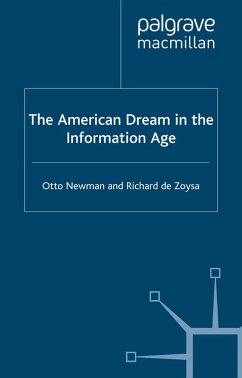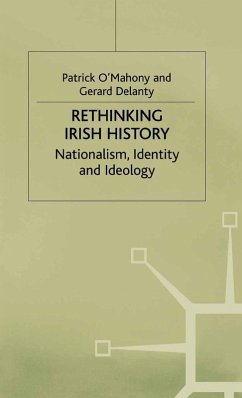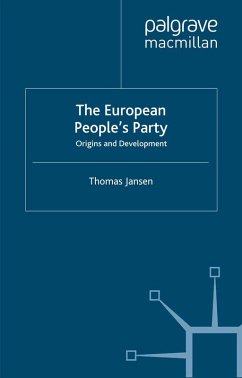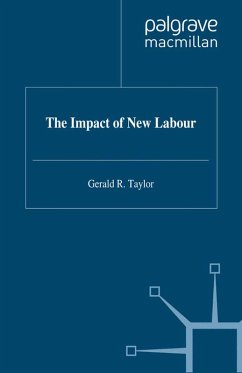
The American Dream in the Information Age (eBook, PDF)
Versandkostenfrei!
Sofort per Download lieferbar
72,95 €
inkl. MwSt.
Weitere Ausgaben:

PAYBACK Punkte
36 °P sammeln!
America's current transformation from an industrial to a new information-based culture presents new challenges as well as new perspectives on old debates. This book offers a comprehensive survey of America's changing values. It examines notions of American exceptionalism and how the 'melting pot' is coping with race relations and changing demographics; it assesses the agenda of government, the domestic and global constraints, and how social exclusion can be tackled. Current changes in the US are likely to be a harbinger for other societies, and the authors examine new models of civic society, ...
America's current transformation from an industrial to a new information-based culture presents new challenges as well as new perspectives on old debates. This book offers a comprehensive survey of America's changing values. It examines notions of American exceptionalism and how the 'melting pot' is coping with race relations and changing demographics; it assesses the agenda of government, the domestic and global constraints, and how social exclusion can be tackled. Current changes in the US are likely to be a harbinger for other societies, and the authors examine new models of civic society, of learning and of reconfiguring social values for a fast-changing world.
Dieser Download kann aus rechtlichen Gründen nur mit Rechnungsadresse in A, B, BG, CY, CZ, D, DK, EW, E, FIN, F, GR, HR, H, IRL, I, LT, L, LR, M, NL, PL, P, R, S, SLO, SK ausgeliefert werden.












